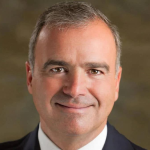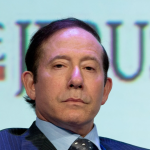
Testosterone levels decline naturally with age, typically from the age of 30 years old. However, testosterone levels are declining, what is normal now, was abnormal a few years ago. Thresholds for treatment are lowering as the normal range is skewed to represent what is normal now, it reflects a sick society.
It’s important to recognise the symptoms of low testosterone, it’s important to address possible reversible causes. The aim of life should be to lead a productive life, full of adventure, full of calculated misadventure. It should be rich; it should be colourful. It is a journey and you are in the driving seat. It might sound flouncy, it’s supposed to, what I’m trying to highlight, it the importance of hormonal health in mental well-being. It’s not the be all or end all, but low testosterone is associated with low mood, anxiety and depersonalisation. Depersonalisation is a state where you are present but not involved, merely a passenger, without a true or appropriate perspective. An element of mental illness is always a presenting symptom.
Mental illness is a spectrum, much like mental well-being, it can be mild, moderate or severe. Lack of drive and determination is commonplace, men often describe lack of enjoyment (anhedonia) in things their former selves would enjoy. It can be work related, but often it’s an unsettling disconnect with family and friends. They are not themselves.
Cognitive decline is another alarming symptom. Men often use the phrase ‘brain fog’ to describe the lack of clarity of thought. Fogginess or a blanket descending over their thoughts accurately puts into words what is difficult to describe. It can be as trivial as forgetting where you put your keys, but it can be troublesome short-term memory loss and an alarming drop in mental aptitude and sharpness.
Fatigue is vague but debilitating. Men have often sought answers and solutions to no avail. A good night’s sleep is a rarity despite best efforts and good sleep hygiene. Perhaps worsened by night sweats from low oestrogen, but a perceived good night’s rest is not met with a refreshed feeling in the morning. A healthy diet does not reward you with an abundance of energy, irrespective of whether food is fuel.
Libido or sex-drive is often flagging. Alongside this comes erectile dysfunction, but the two can be independent. Testosterone is the male sex-hormone, but its role in overall health has often been trivialised as a result of this association.
Physical symptoms such as weight gain, loss of muscle mass, decreased bone mineral density etc are less frequent presenting symptoms. They should not be dismissed, one of my patients has osteoporosis as a result of low testosterone and is awaiting spinal surgery.
Know your body, know the symptoms of low testosterone. Address the fundamentals of health, lifestyle, nutrition and exercise. Stop looking for quick fixes, build from the foundation upwards to make change sustainable.
Dr Robert Stevens MBChB MRCGP Dip.FIPT












